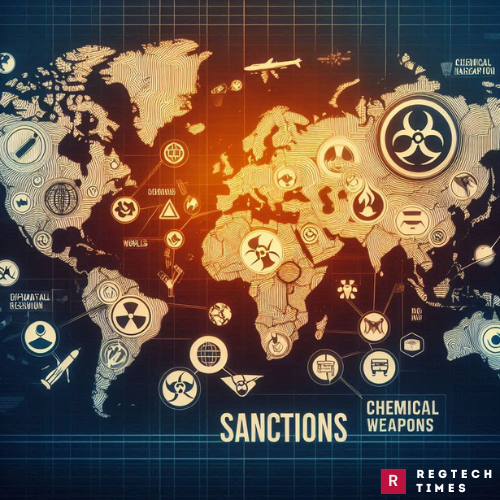As a notable diplomatic action, the United States has enacted sanctions against Hakiman Shargh Research Company due to its participation in Iran’s research and development activities related to chemical weapons. This action, taken under Executive Order 13382 aimed at proliferators of weapons of mass destruction (WMDs), highlights ongoing international concerns over Iran’s compliance with the Chemical Weapons Convention (CWC) and its broader implications for regional stability.
Allegations of Chemical Weapons Development
The sanctions, announced by the U.S. Department of State, accuse Hakiman Shargh Research of engaging in activities that materially contribute to the proliferation of chemical weapons by Iran. This decision comes after ongoing calls from the United States for Iran to address its failure to comply with the CWC, which strictly prohibits the development, production, acquisition, stockpiling, retention, transfer, or use of chemical weapons.
Compliance Issues Under the Chemical Weapons Convention
Since 2018, the United States has maintained that Iran has not fully disclosed its chemical weapons-related activities and facilities, a crucial requirement under the CWC. Moreover, recent assessments by U.S. authorities in 2024 assert that Iran has gone further, allegedly developing pharmaceutical-based agents that could potentially be weaponized, thus violating the treaty’s provisions.
Broader Strategic Implications and Regional Stability
These sanctions carry implications that go beyond mere punitive measures. They are part of a broader strategy to curb Iran’s alleged pursuit of chemical weapons capabilities, which the U.S. contends could exacerbate regional conflicts and pose a threat to international peace and security. By targeting entities like Hakiman Shargh Research, the U.S. aims to disrupt Iran’s efforts and deter similar activities in the future.
The Middle East, already a region fraught with geopolitical tensions, becomes more volatile with the potential use of chemical weapons. Iran’s alleged development of these capabilities not only violates international norms but also raises concerns about the escalation of conflicts in Syria, Yemen, and other areas where Iranian proxies are active.
Concerns about Proxy Involvement and Asymmetrical Warfare
The U.S. statement also emphasizes concerns about the potential use of such weapons by Iran’s proxies and partners. This aspect is particularly alarming in light of Iran’s involvement in various regional conflicts, where its support for armed groups could potentially extend to the use of chemical weapons as a means of asymmetrical warfare.
Criticisms and Diplomatic Challenges
Critics of the sanctions argue that while addressing proliferation concerns is crucial, unilateral actions like these could complicate diplomatic efforts to engage Iran constructively on broader security issues. The sanctions come amidst already strained relations between Washington and Tehran, marked by disputes over Iran’s nuclear program, ballistic missile development, and regional influence.
Global Impact and Multilateral Efforts
Internationally, the sanctions on Hakiman Shargh Research are likely to provoke varied responses. While countries supportive of U.S. policy may endorse the measures as necessary to uphold international norms against chemical weapons, others might view them as exacerbating tensions and potentially destabilizing an already volatile region.
Enforcement Measures and Future Prospects
The sanctions on Hakiman Shargh Research are not merely symbolic but aim to enforce compliance with international norms and agreements that govern the use and proliferation of WMDs. The U.S. has consistently called on the international community to hold Iran accountable for its actions, including at recent meetings of the Organization for the Prohibition of Chemical Weapons (OPCW).
The imposition of sanctions on Hakiman Shargh Research by the United States highlights the ongoing international effort to prevent the proliferation of chemical weapons. While contentious, these measures reflect broader concerns about Iran’s compliance with international agreements and its potential impact on regional stability. As the situation unfolds, the international community will closely watch for further developments and their implications for global security.
The challenge ahead lies in balancing punitive measures with diplomatic engagement to ensure Iran’s adherence to international agreements and prevent the destabilization of the Middle East. Continued international scrutiny and cooperation through organizations like the OPCW will be crucial in addressing these complex security challenges.


